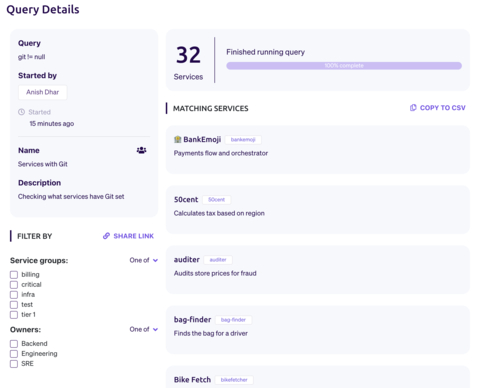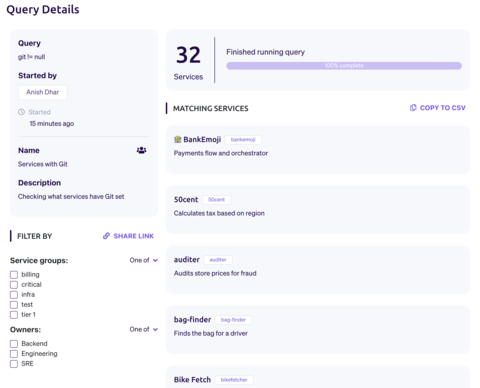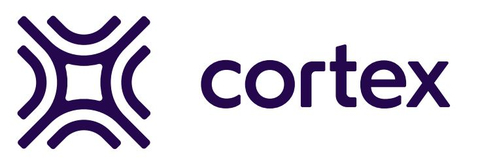SAN FRANCISCO--(BUSINESS WIRE)--Cortex today announced the addition of Cortex Query Builder to its system of record for engineering, giving organizations the ability to search for any data in their microservices catalogs. Query Builder leverages Cortex’s extensive library of third-party integrations along with the powerful Cortex Query Language (CQL), which enables users to write expressive logical statements or create complex rules that can compare data across multiple sources.
This new capability was used by numerous organizations to detect and remediate Log4j vulnerabilities when they were first discovered in December 2021. Customers using early trials of Query Builder ran rules to discover which of their microservices were tagged as Java services that had not been deployed in the past 24 hours, and then quickly applied patches to those services. This early detection of vulnerabilities that might otherwise have gone unnoticed helped these organizations avoid millions of dollars and hundreds of hours of downtime.
“Security continues to be a top concern for application development and deployment in the cloud,” said Lara Greden, Research Director, Platform as a Service (PaaS) at IDC. “In addition, there's a big problem industry-wide in being able to attract and keep people with cloud development skill-sets. Solutions that address security in combination with developers’ pain points are fundamentally key to enabling success in the cloud.”
Software engineering teams today struggle to operate at scale. As companies grow, architectures become more complex and teams retract into silos. Tracking service quality and driving adoption of best practices using spreadsheets and shared knowledge is impossible. The inevitable cracks in the system manifest themselves as outages, missed deadlines, security incidents, and developer turnover. The Cortex platform addresses these issues, providing a system of record for engineering that enables comprehensive visibility into and control over microservices at any scale.
Core capabilities of the Cortex Platform include:
- Service Creation allows developers to scaffold new services in five minutes based on templates defined by the organization, ensuring services meet development standards and are properly cataloged from day one.
- Cortex Teams helps create high-performing engineering cultures by driving collective ownership of services, accelerating developer onboarding, and improving cross-team collaboration.
- The Cortex Service Catalog is easily integrated with engineering teams’ architectures and tools, making it simple for them to organize critical information about their services and understand their dependencies.
- Scorecards allow teams to define standards for their services, measuring things like production readiness and development maturity, allowing engineering leaders to understand areas of risk in their services and prioritize initiatives accordingly.
“Being able to quickly get information when you need it across many different tools accelerates innovation by eliminating time wasted on writing custom scripts and gathering data manually,” said Cortex CTO Ganesh Datta. “Having all of this data in a single place and being able to query it instantly unlocks new use cases for Cortex customers, whether they are initiating new projects or working to optimize the effectiveness of their service integrations.”
About Cortex
The Cortex platform provides a System of Record for Engineering, designed to give engineers and SREs comprehensive microservices visibility and control. Cortex provides a single-pane-of-glass for visualization of service ownership, documentation and performance history, replacing “tribal knowledge” and spreadsheets. This gives engineering and SRE teams the visibility and control they need over their services, even as teams shift, people move, platforms change and microservices continue to grow. Cortex is a YCombinator Company backed by Sequoia Capital and Tiger Global. For more information, visit www.cortex.io or see us on Twitter at @GetCortexApp.




